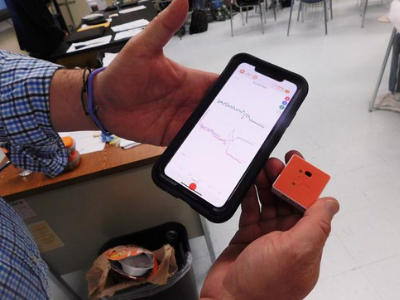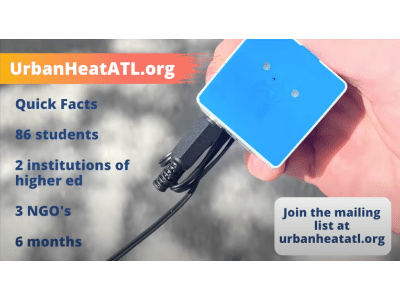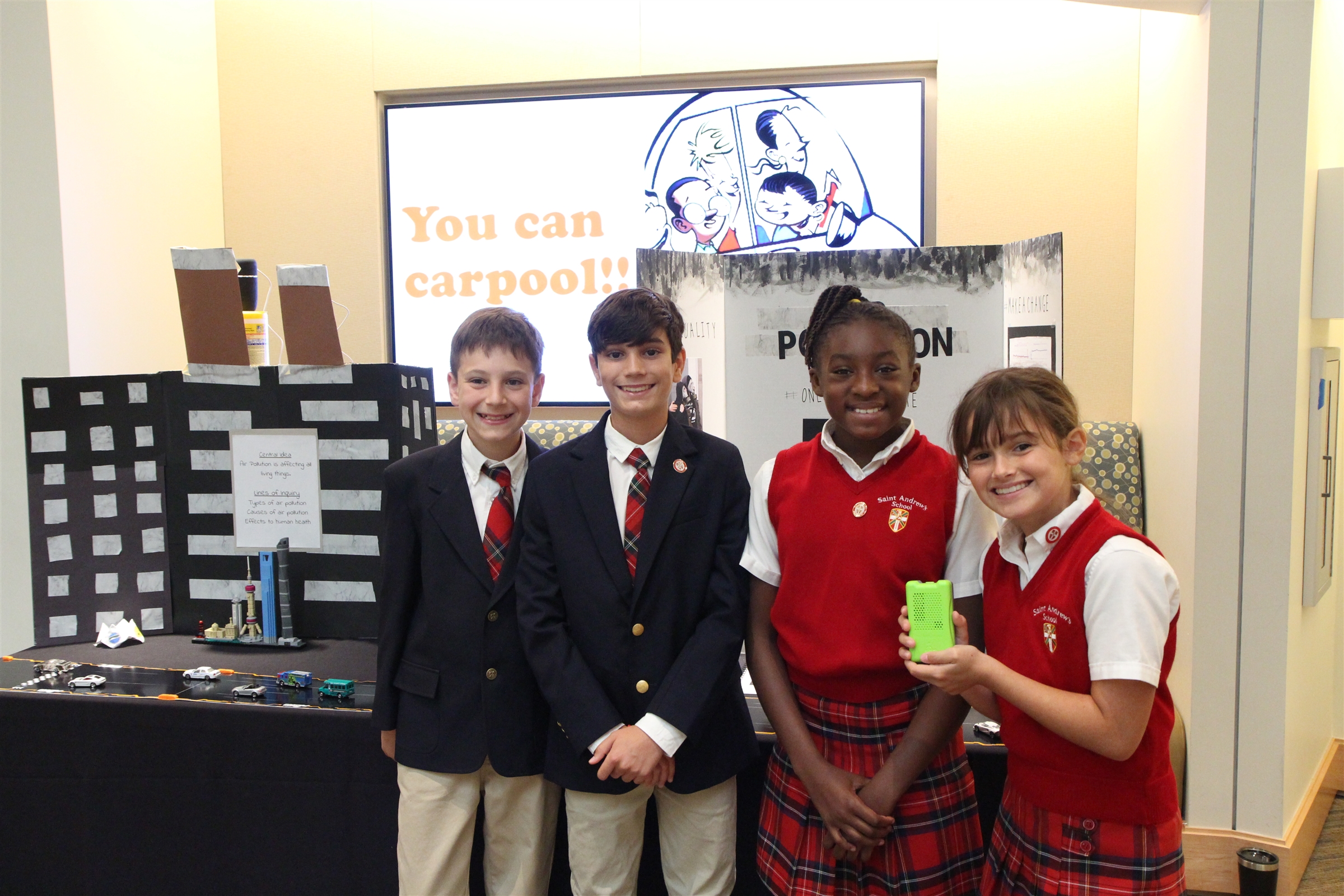Georgia Tech is Mapping Urban Heat Islands in Atlanta With PocketLabs
#UrbanHeatATL Get involved: urbanheatatl.org
2 min read
PocketLab STEM Superstars Mar 2, 2022 11:01:00 AM

In southern Georgia, AP students in Richard Faucett's environmental science class participated in a citizen science research initiative happening out of Atlanta collecting data measuring the effect of heat islands under the guidance of Dr. Kim Cobb, the director of the Global Change Program at Georgia Technical University. The same research is also being done nationwide through several organizations including The National Oceanic and Atmospheric Administration (NOAA).
This, and the videos below were the break videos from the 8th Science is Cool unconference.
Dr. Cobb and her team have partnered with Dr. Na'Taki Osborne Jelks from Spelman College to form UrbanHeatATL, an organization mapping Atlanta's urban heat islands with community science as part of this citizen science project. UrbanHeatATL is analyzing this data as it relates to the impacts of climate change on frontline communities, and the role of urban greenspace, city planning, and energy burden in shaping environmental justice priorities.
Structures such as buildings, roads, and other infrastructure absorb and re-emit the sun’s heat more than natural landscapes such as forests and water bodies. Urban areas, where these structures are highly concentrated and greenery is limited, become “islands” of higher temperatures relative to outlying areas. These pockets of heat are referred to as “heat islands.”
Extreme heat is the leading cause of weather-related deaths in the United States. Heat extremes disproportionately affect the most vulnerable community members and are particularly deadly in densely populated urban centers such as Atlanta.
The students in Thomasville, Georgia, live in a fairly rural area, but even there they observed a noticeable difference in temperatures when comparing high human traffic to areas with more green space.
Thomas County Schools purchased an equipment bundle from PocketLab to get their students involved in more hands-on science. Dr. Scott Sweeting, the K12 science instructional coordinator for the Thomas County School System, said that it was soon after receiving the equipment that the school partnered with Georgia Tech and Spelman College and began participating in the Urban Heat Island Project.

On the first day of data collection, the students were joined by Payton Fletcher, a local journalist at the Thomasville Times-Enterprise. Dr. Sweeting, District Superintendent Lisa Williams, Science Department Head Megan Bradshaw, and Principal Jamie Thompson came out, as well, to be part of the project.
The students at Thomasville Central High School are using PocketLab Voyagers from their equipment bundle (but also sold individually) to take temperature readings from various areas around the school with an abundance of pavement and compare that data to areas like the football field or other surrounding green areas. PocketLab sensors are able to wirelessly upload collected data to be later analyzed inside of the PocketLab Notebook application that Mr. Faucett uses to assign his student's science lessons on a regular basis.
Sweeting said that involvement with the project allowed the students to see the impacts of scientific research in a concrete way that made it significantly more pertinent for them. In fact, according to Dr. Sweeting, this data collection of the local temperature will be a regular part of the curriculum for the AP Environment Science class moving forward, mentioning that the data will be sent to professors and researchers at Georgia Tech and Spelman College.
To learn more about what you can do with PocketLab tools and the equipment being used for this heat island project, visit our #PoweredByPocketLab page.
If you would like to check out a sample heat island lesson inside our free Notebook software platform, click the lesson tile above.
If you would like to explore more free science lessons in PocketLab Notebook, you can visit our lesson library here: Notebook Lesson Library
If you would like to talk with someone on the PocketLab team to learn more about how to implement a project like this in your school or district, please click here to send us a message or simply email us at contact@thepocketlab.com. We would love to talk with you. We love seeing students get excited about science!
You can check out the article written by Payton here: https://www.timesenterprise.com/news/education/tcchs-ap-environmental-science-students-participate-in-research-project/article_dd4aa6b4-892d-11ec-894b-cf092598aff3.htm

#UrbanHeatATL Get involved: urbanheatatl.org

Grade 5 STEM students at Saint Andrew’s School are the newest climate scientists on the block. They caught wind of startling air pollution statistics...

It has been just over a year since the first ScIC launched. And WOW, what a year it has been. ScIC has attracted 46,436 teachers...